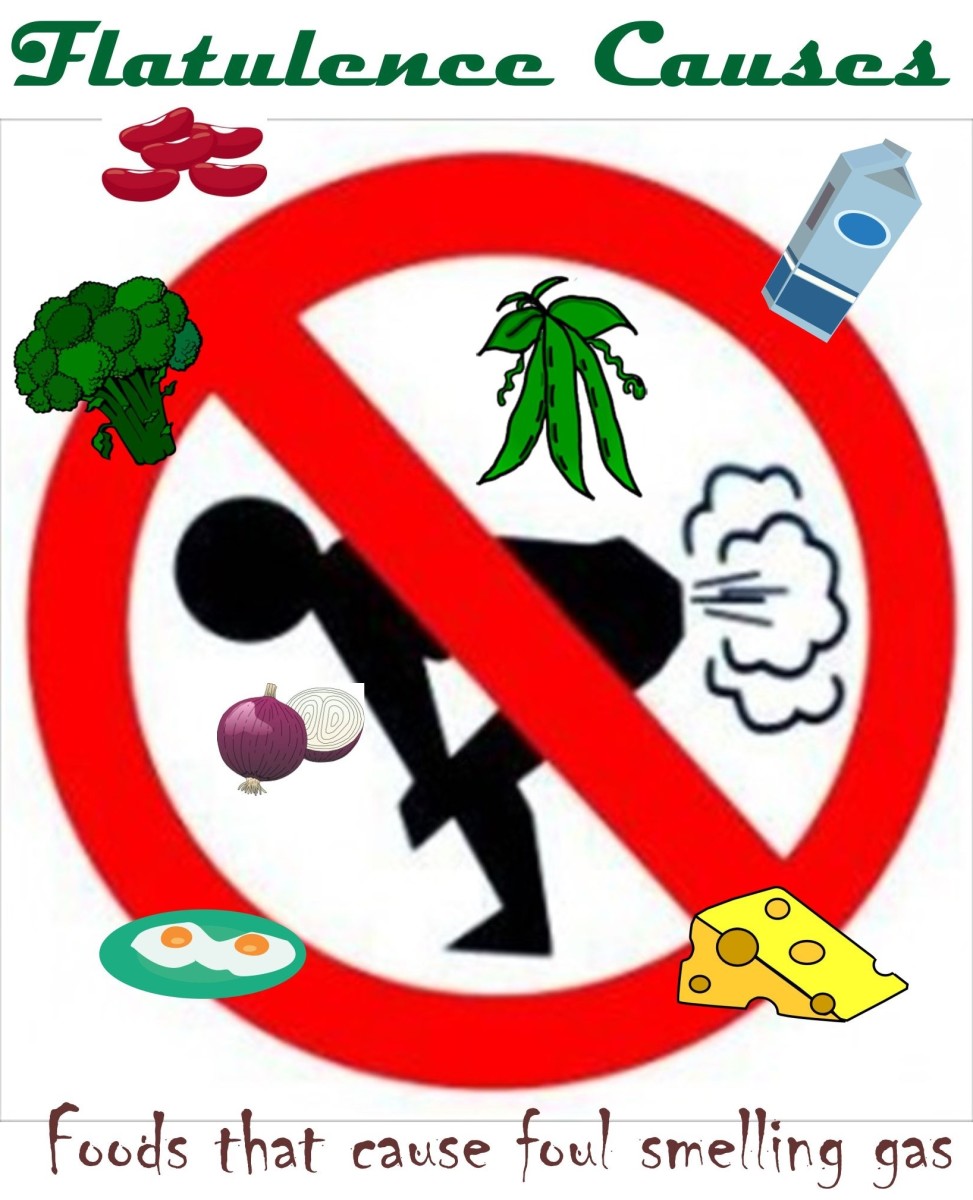Why Do My Farts Smell So Bad?
There’s nothing quite like the unmistakable aroma of a particularly offensive fart to clear a room and leave everyone gagging in its wake. But, have you ever wondered why your farts smell so bad? It’s a common question that many of us have asked ourselves at one point or another. While we may find it embarrassing to talk about, the truth is that our flatulence can actually tell us a lot about our health and well-being. So, let’s dive into the fascinating world of fart odors and explore what your body might be trying to tell you with its less-than-pleasant aroma.
1. Understanding the Science Behind Foul-Smelling Farts
1. Understanding the Science Behind Foul-Smelling Farts
Q: What causes farts to smell bad?
A: The bad smell in farts comes from the presence of sulfur-containing compounds, particularly hydrogen sulfide, which is produced by intestinal bacteria during digestion.
Q: Why do some people have particularly stinky farts?
A: A number of factors can contribute to particularly foul-smelling flatulence, including bacterial imbalances in the gut, low bacterial diversity, and an unbalanced diet high in fiber or sulfur.
Q: Is there anything that can be done to reduce the smell of farts?
A: Natural remedies such as apple cider vinegar, activated charcoal, and fennel seeds may help to reduce the odor of flatulence, but it’s important to address any underlying digestive issues that may be contributing to foul-smelling gas. This may involve dietary changes, probiotics, or other interventions recommended by a medical professional.

2. Bacterial Imbalances and Excessive Gas
2. Bacterial Imbalances and Excessive Gas FAQ
Q: How does bacterial imbalance cause excessive and foul-smelling gas?
A: When there is an imbalance of good and bad bacteria in the gut, the bad bacteria can cause more production of gas. This gas can have a strong and unpleasant odor.
Q: What are the effects of low bacterial diversity in the gut?
A: People with low bacterial diversity in their gut often have issues with excessive and foul-smelling gas. It is recommended to consume probiotics and fiber-rich foods to increase bacterial diversity.
Q: Can unbalanced diet cause foul-smelling gas?
A: Yes, an unbalanced diet that is high in processed foods and low in fiber can cause foul-smelling gas. Consuming high-fiber foods and drinking plenty of water can help regulate digestion and reduce unpleasant gas.
Q: How does Hydrogen Sulfide contribute to stinky gas?
A: The unbalance of gut bacteria can result in the overproduction of Hydrogen Sulfide. This compound gives off a strong odor that is commonly associated with bad smelling gas.
Q: Can celiac disease influence foul-smelling gas?
A: Yes, undiagnosed celiac disease can cause gastrointestinal problems including bloating, gas and diarrhea, leading to foul-smelling gas. It is important to seek medical attention if you suspect you may have celiac disease.
Q: What are some ways to naturally reduce foul-smelling gas?
A: Consuming probiotics, fiber-rich foods and staying hydrated can help regulate gut bacteria and improve digestion. Additionally, taking time to thoroughly chew food can prevent swallowing too much air while eating. Finally, adding herbs such as ginger or peppermint to meals can also help reduce gas and promote healthy digestion.

3. Low Bacterial Diversity and Its Effects on Flatulence
3. Low Bacterial Diversity and Its Effects on Flatulence
Q: What is low bacterial diversity in the gut and why does it affect flatulence?
A: Low bacterial diversity in the gut refers to a condition where there are fewer types of bacteria present in the digestive tract. This can lead to overgrowth of certain bacteria that produce foul-smelling gases like hydrogen sulfide. When these gases mix with the other gases present in the digestive tract, they cause a bad odor.
Q: How can low bacterial diversity be improved?
A: Prebiotics and probiotics are the key to improving bacterial diversity in the gut. Prebiotics are found in foods like onions, garlic, and bananas, and help feed the good bacteria in your gut. Probiotics, on the other hand, are found in fermented foods like kimchi, sauerkraut, and yogurt, and contain live bacteria that can help balance the gut flora.
Q: Can low bacterial diversity contribute to other health issues besides flatulence?
A: Yes, research has shown that low bacterial diversity in the gut can lead to a host of health issues, including inflammatory bowel disease, irritable bowel syndrome, and even depression.
Q: How long does it take to see improvements in flatulence after improving bacterial diversity?
A: It can take several weeks or even months to see improvements in flatulence after improving bacterial diversity. However, the benefits of a healthy gut flora will extend beyond just reducing flatulence, and will improve overall health and well-being.
:max_bytes(150000):strip_icc()/health-GettyImages-1350326139-40584c63416b4d128b78e5798e42b888.jpg)
4. Unbalanced Diet and Its Impact on Fart Odors
4. Unbalanced Diet and Its Impact on Fart Odors
An unbalanced diet can have a significant impact on the odors emitted from your farts. Consuming foods that are high in protein, sulfur, and fiber can cause the release of odorous gases. This is because the bacteria in your gut break down these foods and produce unpleasant odors.
Frequently Asked Questions:
Q: What foods should I avoid to reduce foul-smelling farts?
A: You should avoid foods that are high in protein, sulfur, and fiber. Some examples include beans, lentils, broccoli, cabbage, onions, garlic, and dairy products.
Q: Can drinking more water help reduce fart odors?
A: Yes, drinking more water can help flush out toxins in your digestive system and reduce the bacterial imbalance that causes foul-smelling farts.
Q: Are there any natural remedies that can help reduce fart odors?
A: Yes, consuming certain herbs and spices like ginger, peppermint, and fennel can help reduce gas and improve digestion.
Q: Is it okay to consume high-fiber foods even though they can cause foul-smelling farts?
A: Yes, it is essential to consume high-fiber foods as they are an essential part of a healthy diet. However, you should balance your diet with other foods and make sure to drink plenty of water to reduce the bacterial imbalance in your gut.
Remember, a balanced diet is crucial for maintaining good digestive health and reducing the odors emitted from your farts. It’s also important to address any food intolerances or sensitivities to prevent excessive gas and smelly farts.

5. Chronic Gas and Underlying Health Conditions
FAQ Section: Chronic Gas and Underlying Health Conditions
1. Can chronic gas indicate an underlying health condition?
Yes, it can. Chronic gas that smells particularly bad may indicate a health condition affecting the digestive system, such as irritable bowel syndrome, indigestion, or gastroenteritis.
2. How can one differentiate between chronic gas and normal flatulence?
Chronic gas is typically characterized by foul-smelling gas that persists for an extended period. It may also be accompanied by other symptoms such as bloating, constipation, or diarrhea, which are not typically associated with normal flatulence.
3. Are there any natural remedies for chronic gas?
Yes, there are. Natural remedies like ginger tea, peppermint oil, and fennel seeds can help ease gas and promote healthy digestion. However, if chronic gas persists, it is advisable to see a healthcare provider to rule out any underlying health problems.
4. Can bacterial imbalances cause chronic gas?
Yes, they can. Bacterial imbalances in the gut can lead to excessive and foul-smelling gas, which is why maintaining healthy gut bacteria through a balanced diet is essential for good digestive health.
5. Can chronic gas be a sign of colon cancer?
In rare cases, chronic gas may be a sign of colon cancer, especially if it is accompanied by other symptoms such as rectal bleeding or unexplained weight loss. It is essential to see a healthcare provider to rule out any serious underlying health problems.
6. What can be done to prevent chronic gas?
In addition to maintaining a healthy diet and lifestyle, it is essential to keep a food diary to identify trigger foods that can lead to excess gas. Regular exercise, stress reduction, and staying hydrated can also help prevent chronic gas.

6. High-Fiber Foods and Their Connection to Foul-Smelling Farts
FAQ: High-Fiber Foods and Their Connection to Foul-Smelling Farts
Q: What are high-fiber foods and why do they cause foul-smelling farts?
A: High-fiber foods are foods that are rich in fiber, such as fruits, vegetables, whole grains, beans, and legumes. While fiber is essential for a healthy diet and digestion, it can also lead to increased gas production in the digestive tract. When fiber reaches the colon undigested, it gets broken down by gut bacteria, causing the release of gases like methane and hydrogen sulfide, which can make farts smell particularly bad.
Q: Are all high-fiber foods equally likely to cause foul-smelling farts?
A: No. Some high-fiber foods, such as certain types of beans and legumes, are more likely to cause foul-smelling farts due to the presence of fructans, a type of carbohydrate that can cause bloating and gas. Additionally, some individuals may be more sensitive to certain high-fiber foods than others.
Q: Is there anything that can be done to reduce the odor of farts caused by high-fiber foods?
A: Yes, there are several natural remedies that may help reduce the odor of farts caused by high-fiber foods. These include consuming more probiotics to improve the balance of gut bacteria, drinking peppermint tea to aid digestion, and reducing intake of high-fiber foods at once to prevent overloading the digestive system.
Q: Should individuals avoid high-fiber foods altogether to avoid foul-smelling farts?
A: No. While reducing intake of certain high-fiber foods may help alleviate symptoms, it’s important to continue consuming a variety of high-fiber foods to maintain a healthy diet and avoid constipation. However, it’s important to note that individuals with certain health conditions, such as irritable bowel syndrome, may need to avoid or limit high-fiber foods to manage symptoms.

7. The Role of Hydrogen Sulfide in Stinky Gas
7. The Role of Hydrogen Sulfide in Stinky Gas:
What is hydrogen sulfide and why does it make farts smell bad?
Hydrogen sulfide is a gas produced by the breakdown of certain compounds present in our diet. These compounds contain sulfur, which is converted to hydrogen sulfide by gut bacteria during the digestive process. When hydrogen sulfide exits the body as a fart, it can contribute to the foul odor we associate with flatulence.
Does everyone produce hydrogen sulfide, or is it only some people?
Nearly everyone produces some amount of hydrogen sulfide. However, the quantity and intensity of the gas produced can vary widely depending on a person’s diet, gut bacteria, and overall health.
Can you reduce the amount of hydrogen sulfide you produce?
Yes, there are a few things you can do to reduce the amount of hydrogen sulfide produced in your gut. Eating a balanced, fiber-rich diet can help maintain healthy gut bacteria, while reducing the amount of sulfur-rich foods you eat can help decrease the quantity of hydrogen sulfide produced. Additionally, drinking water, exercising regularly, and avoiding smoking can also help minimize the production of sulfur-based gases like hydrogen sulfide.
Are there any health risks associated with high levels of hydrogen sulfide in farts?
In rare cases, exposure to high concentrations of hydrogen sulfide gas can cause respiratory issues, headaches, and gastrointestinal problems. However, for most people, the amount of hydrogen sulfide produced in farts is not a health concern.
Overall, the presence of hydrogen sulfide in our flatulence is simply a byproduct of healthy digestion that, while unpleasant, can be managed with the right diet and lifestyle choices. By making small changes to your habits, you may be able to minimize the amount of hydrogen sulfide produced, and make your farts a little less stinky.
8. Undigested Carbohydrates and Their Relationship with Gas
FAQ:
Q: What are undigested carbohydrates and how do they relate to gas?
A: Undigested carbohydrates refer to the carbohydrates in foods that the body cannot fully break down and absorb in the small intestine. The undigested carbohydrates then pass into the large intestine where they become a food source for gut bacteria. As a result, the bacteria produce gas, which can cause flatulence.
Q: What foods contain undigested carbohydrates?
A: Foods that are high in carbohydrates and fiber are more likely to contain undigested carbohydrates. Examples of foods that contain undigested carbohydrates include beans, lentils, broccoli, cabbage, onions, and whole grains.
Q: How can undigested carbohydrates be reduced?
A: One way to reduce undigested carbohydrates is to limit the intake of high-carbohydrate and high-fiber foods. Another solution is to cook these foods properly to help break down some of the complex carbohydrates. For some individuals, taking digestive enzyme supplements can also aid in the breakdown of carbohydrates.
Q: Can undigested carbohydrates cause other digestive issues besides gas?
A: Yes, undigested carbohydrates can also cause bloating, abdominal pain, and diarrhea. This is because the bacteria in the large intestine ferment the undigested carbohydrates, which can lead to excessive gas and other gastrointestinal symptoms.
Q: How can one determine if undigested carbohydrates are the cause of their gas?
A: Keeping a food diary and tracking gas symptoms can help identify foods that may be causing excessive gas. Additionally, elimination diets or working with a registered dietitian can help pinpoint the problem foods and develop an appropriate dietary plan.

9. Celiac Disease and Its Influence on Fart Odors
9. Celiac Disease and Its Influence on Fart Odors
Celiac Disease is an autoimmune disorder that affects the digestive system by damaging its lining. This damage prevents proper food absorption and can lead to malnutrition. One of the symptoms of Celiac Disease is excessive flatulence accompanied by a foul odor.
When someone with Celiac Disease consumes gluten, the body’s immune system attacks the lining of the small intestine, causing inflammation. This inflammation damages the villi, small finger-like projections that line the inside of the small intestine. Villi play a crucial role in nutrient absorption, so their damage can cause problems in the digestive system, such as excessive gas.
The malabsorption of nutrients caused by Celiac Disease leads to the production of more gas in the digestive system, which can cause smelly farts. Additionally, the food that is not properly digested due to Celiac Disease can rot and ferment in the gut, leading to an even more unpleasant odor.
If you suspect that you have Celiac Disease, consult your doctor for testing. If diagnosed, maintain a gluten-free diet and take digestive enzymes to reduce gas and bloating. However, it’s essential to remember that excessive flatulence can be caused by other conditions and is not always an indicator of Celiac Disease.
By understanding the science behind Celiac Disease and how it influences fart odors, individuals can take the necessary steps to manage their symptoms and improve their digestive health. Consider consulting a nutritionist to develop a well-balanced, gluten-free diet that will meet your nutritional needs while reducing your fart odor.

10. Natural Remedies for Reducing Foul-Smelling Farts.
10. Natural Remedies for Reducing Foul-Smelling Farts FAQs:
1. What are some natural remedies for reducing foul-smelling farts?
There are many natural remedies available that can help reduce the foul odor of flatulence. Ginger, lemon water, peppermint, fennel seeds, and chamomile tea are some of the most effective ones.
2. How does ginger help in reducing foul-smelling farts?
Ginger contains gingerols and shgaols that help in stimulating digestion and reducing inflammation in the gut. This, in turn, reduces the foul smell of flatulence.
3. What are the benefits of drinking warm lemon water with honey?
Lemon water with honey is an effective remedy for preventing gastric pain and reducing the odor of flatulence. It also contains enzymes that help in breaking down food and assisting in the digestion process.
4. How can fennel seeds help in reducing the odor of flatulence?
Fennel seeds contain an antioxidant called anethole that helps in reducing inflammation in the gut and improving digestion. These properties make them a great option for reducing the odor of flatulence.
5. Can chamomile tea reduce the odor of flatulence?
Yes, chamomile tea contains anti-inflammatory properties that help in reducing inflammation in the gut and improving digestion. This, in turn, reduces the foul smell of flatulence.
Overall, incorporating natural remedies like ginger, lemon water, peppermint, fennel seeds, and chamomile tea into your diet can help reduce the foul smell of flatulence. Additionally, it’s important to maintain a healthy, balanced diet and lifestyle to avoid excessive gas and other digestive issues.









